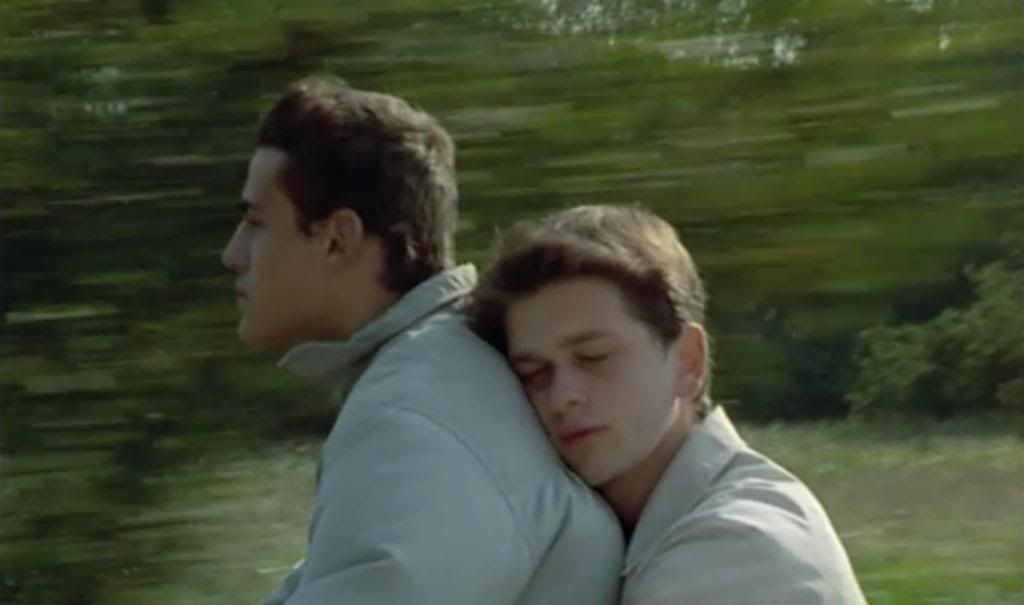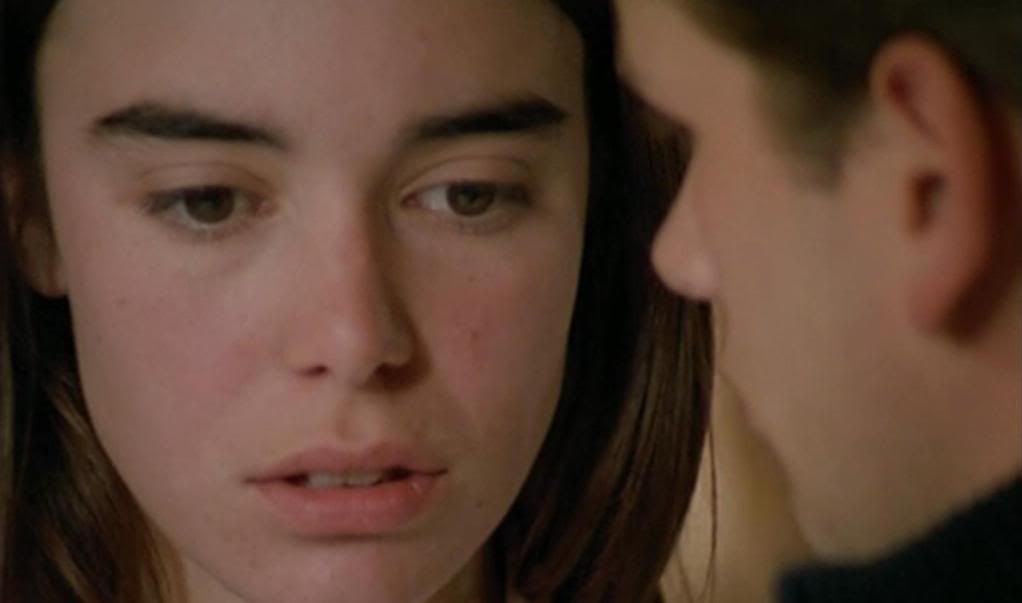
In Wild Reeds, director André Téchiné dramatizes the moment right on the cusp between adolescence and adulthood, right at the moment when teens are struggling to define themselves, to cope with burgeoning sexual desires and decide what they want from life, where they're heading and what they'll be doing in the future. The film sets this awakening against the backdrop of the Algerian War, as so many French films have, juxtaposing the passage into adulthood with the loss of innocence represented by the violence and political turmoil of Algeria.
Téchiné renders this story with a wan and somewhat faded color palette, like an old photograph, worn and frayed by the nostalgia accrued in the decades between this 1962 summer and the film's production. Téchiné himself would have been 19 in the year the film is set, suggesting that he's drawing on his own experiences, his own memories of the discomfiting intimacy between his own adolescence and the background of war and confusion against which it occurred.
The film is elegant and delicate, the camera gently tracking around the quartet of teenagers at the story's core. There's François (Gaël Morel), who's starting to realize that he's gay, nursing an intense desire for his schoolmate Serge (Stéphane Rideau). François is also the platonic kind-of boyfriend of Maïté (Élodie Bouchez); they've been friends since childhood and are thought of as though they're dating even though nothing has ever happened between them. This neat triangle — Serge desires Maïté, who says she doesn't care about François' sudden realizations about himself, even though she's clearly shocked — is complicated by the presence of Henri (Frédéric Gorny), an arrogant and elitist youth who's immersed in the news from Algeria, where he lived until just recently.
Algeria and the politics surrounding it haunt the film, and political convictions are one of the things that these young people must come to grips with as they try to decide who they are. Henri is a far-right partisan of the French nationalist terrorist group the O.A.S., whose activities are mentioned frequently on the radio news reports that Henri's always listening to. Maïté, like her mother (Michèle Moretti), is a Communist, though one senses that she doesn't share her mother's absolutist conviction in the cause. Maïté's mother, a schoolteacher, is such a partisan that she hands out grades in her English class based on the political ideas expressed in papers, and there are references to Maïté's father leaving them because she was immersed in her cause to the exclusion of all else.

The film's dominant composition is the two-shot, as the young people pair off into different couplings, different combinations, as though experimenting to see what works. Téchiné captures them in intimate two-shots, their faces overlapping and close together, electric tension suspended in the scant space between them, their uncertainty and confusion passing between them in the glances they give each other, the hesitant intimacy of their dawning desires. For most of the film, Téchiné never even brings all of the characters together, restricting them to these alternating pairs and quasi-couples. Occasionally, Henri tries to horn in on the furtive intimacy between Serge and François, but not until the very end of the film do all the characters come together, first as a cheerful threesome that recalls Band of Outsiders or Jules and Jim, and then as a full quartet — though they quickly pair off again before the finale suggests that they're all heading in separate directions anyway.
The film is all about the contrasts and resonances between their fresh young faces. Serge, befriending François, tells him that they'll go well together because they're such different "types," and indeed they are, François delicate and boyish in contrast to the broad, tanned working class face of the farmer Serge. The sensuality between them is enhanced by the differences in their types, which is a way of saying the differences in their backgrounds, the differences in their economic class — and thus the differences in their likely futures, as Serge ultimately decides that all he wants is to stay on his family's farm, while François seems bound to graduate and head off to more intellectual pursuits.
This uncertainty about the future is what makes the film so poignant, so gently moving. It's a touching, emotionally complex film with a real sensitivity to nuance: in one scene, the confused François pays a visit to the only gay man he knows, the owner of the town's shoe store, and though the man seems uncomfortable talking about his sexuality and can't help François, Téchiné grants the man a parting closeup that is searing in its directness, capturing the expression of yearning, confusion, and recognition on his face as he watches François walk away. That shot makes it clear that the man desperately wants or needs to talk to someone, but can't find the words any more than François can.
Téchiné treats his themes with delicacy and grace, never forcing an epiphany or trying too hard to resolve the ambiguity of these relationships. Instead, the film is warm and sensuous, capturing with precision and understated emotion the time in life when everything seems hazy, when political convictions and sexual desires and ambitions about life and love and work are all up in the air, and anything might still be possible. The film, though, is about the closing of those horizons, the narrowing down of all possibilities to those few that seem appealing and likely.

2 comments:
The owner of the shoe store is played by Jacques Nolot, a actor, screenwriter and director who was Roland Barthes boyfriend before Techine came along. There were no hard feelings between them. In fact Nolot scripted Techine's I Don't Kiss a film a clef of sorts in which Philippe Noiret plays a character clearly based on Barthes.
Barthes also figures as a"structing absence" in Nolot's Before I Forget
Gael Morel has gone on to become one of France's leading gay filmmakers, all of whose works star Stephane Rideau.
This Techine masterpiece is one of my favorite films of the 1990's and clearly a film of aching authenticity, warmth (you are dead-on Ed when you use the words 'elegant and delicate') and sexual awakening. One of the most engrossing of all coming-of-age films, and set during political turbulence, it is indeed a character study of various couplings and their fascinating and affecting interactions. The most moving character of all is Francois (played beautifully by Gael Morel) who is coming to his own personal realizations. Yes, Ed, it is an emotionally complex a film that has come out of France over the past decades, and it's one that leaves a haunting resonance.
You have again peeled away the gauze to provide readers with a lyrical and cogent assessment of this great film.
Post a Comment